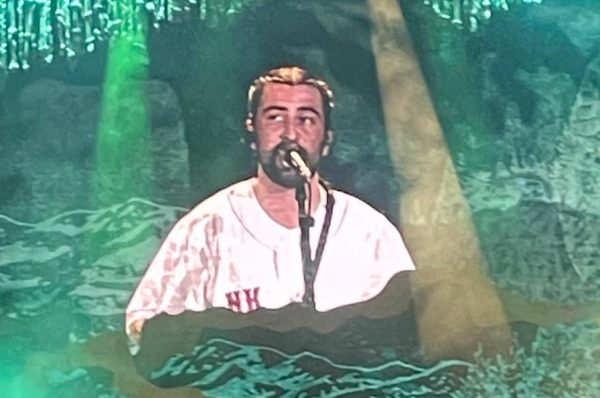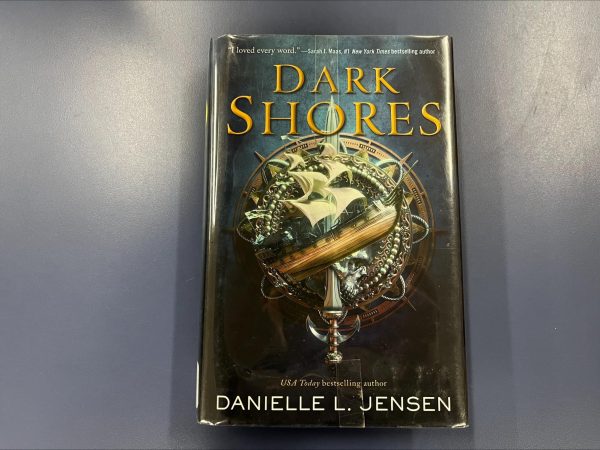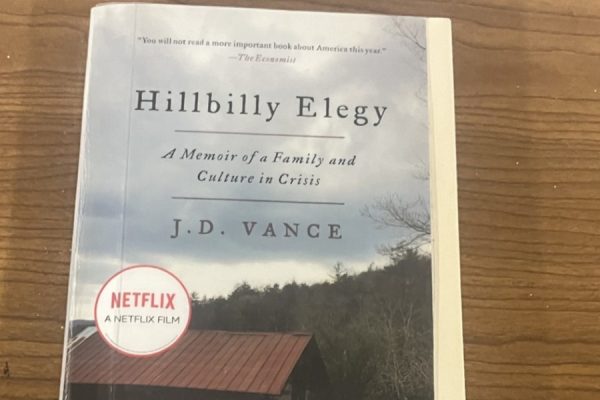Solace and Earl Sweatshirt’s Journey Through Depression’s Cycle

Cover art for Solace
From the beginning of Earl Sweatshirt’s career, he has been no stranger to including dark themes in his music. Even his 2013 debut album Doris includes hints of Earl being somewhat of a tortured and pessimistic writer. Two years later, his sophomore album I Don’t Like Sh*t, I Don’t Go Outside was released and renowned as his opus at that point, as it throws the listener into a chamber of depression, anger, and hostility towards society with more stripped-back production and lyrics scowled from the soul. Just a month later, though, Earl’s arguably darkest release Solace came by surprise.
Dedicated to his mother, Solace is described by Earl as “Music from when I hit the bottom and found something” on the YouTube description of the EP. The production on this EP is mesmerizing and the lyrical content is simple, yet violently depressing. With a runtime of only 10 minutes split up into five parts, Earl conveys very much with what little, sonically, is there. In a way, Solace acts as the quiet after the storm following the release of his previous album.
Part I begins with a 45-second loop of something that sounds like you’ve been falling down this seemingly endless pit for hours, but abruptly cuts off as the beat changes and Earl’s sharp vocals come in.
“Late for everything, my face to the cement
That’s how I always seen it
I spent days faded and anemic
You can see it in my face, I ain’t been eatin’, I’m just wasting away”
are the first words you hear from him as he sends out this cry for help without explicitly stating his situation with depression. He focuses mainly on being virtually locked in his home with nothing but himself and drugs during this period of depression as he’s become paranoid with the world around him, stating that he’s “watchin’ every b*tch in [his] space”. Earl closes Part I with the lines:
“Try to make some sense of all this sh*t in my brain
One foot stuck in the tar pit of my ways,”
showing that while he’s clearly hit the bottom, he hasn’t given up his search for meaning although his “ways” keep repeating themselves again and again.
As Part I’s instrumental fades to silence, a new piano-driven melody slowly approaches, which at first sounds like a light is approaching, but then transitions to an eerie, downright frightening piano loop for the remainder of Part II. Earl begins muttering the beginning of his vocal performance on this part in essentially the exact opposite way of Part I. Earl grumbles:
“And if it’s like that the whole time
If it’s like that the whole time, we’ll be alright
And if it’s like that the whole time, we’ll be alright
Stayin’ up all night, but it’s alright
And I been stayin’ up all night, but it’s alright”
Earl expresses that he’s been this way before and is somewhat trying to convince himself that it’ll be “alright” if things are always like this, but he’s clearly failing. His verse opens up by saying that he’s “fixin to give up,” followed by his feelings of endless loneliness. He claims that in his place of living it’s “just [him] and [his] nibbling conscience” which is eating away at what parts of him are left. Earl later notes that it’s raining “a bit” outside of his house and that he hopes it turns into a monsoon, showing how he hopes for the absolute worst out of something as small as the rain outside. Earl’s vocal performance on Part II ends with his concerns with his plans to see his mother in the near future, but convinces himself that he’s too “faded” to go out, as he continues to mumble into silence. A screeching noise begins to jump in and out of the background piano loop as the piano loop itself decomposes into a jumbled mess of instrumentation, then falls silent once again.
Part III is another surprising change in the tone of the EP, acting like Earl facing some kind of a temporary state of contentedness. As this section is instrumental-only and lasts just under 90 seconds, there is not much further to say about it rather than how beautifully it transitions into Part IV.
Earl begins the second-to-last part by mourning his late grandmother. In his opening lines, he speaks softly into the bare instrumental with some of the hardest-hitting lyrics on the EP.
“I got my grandmama’s hands, I start to cry when I see ‘em
‘Cause it reminds me of seeing her
These the times that I need her the most ‘cause I feel defeated”
Earl reflects on the similarities between himself and his grandmother, doing so much as to cry when he does something as minor as look at his own hands. Earl explains later in this verse that she was really able to understand his “hectic process of thinking,” and without her there, he is missing one of the few people he could truly be honest with. Earl cuts himself short when mentioning his grandmother by again bringing up his struggles with loneliness that he has previously talked about on this EP, and Part IV concludes with more soft-spoken, chilling lines:
“Time waits for no man and death waits with cold hands
I’m the youngest old man that you know
If ya soul intact, let me know”
Part V concludes the EP as an instrumental building off of the instrumental heard in Part IV, leaving a somber tone while still leaving some hope for Earl.
After hearing this EP probably over a hundred times since I first heard it around three years ago, I can say with certainty that this Solace is the most accurate musical depiction of depression to be released. Not only does it showcase Earl’s incredible talent as a lyricist with the vivid imagery used, but also as a producer, creating this almost fever dream-esque, dreary soundscape. Many artists nowadays fall so short when trying to bring their depressive state into real life through music by making it overly edgy and dramatic, but the genuinity displayed by Earl in Solace is such a gem in the world of music, and showed that Earl Sweatshirt’s name is very well cemented in the list of the music’s greatest lyricists.

Sonny DeFilippo is a senior at Goffstown High School. In his free time, he enjoys writing, biking, listening to music, and going to concerts. Sonny hopes...







